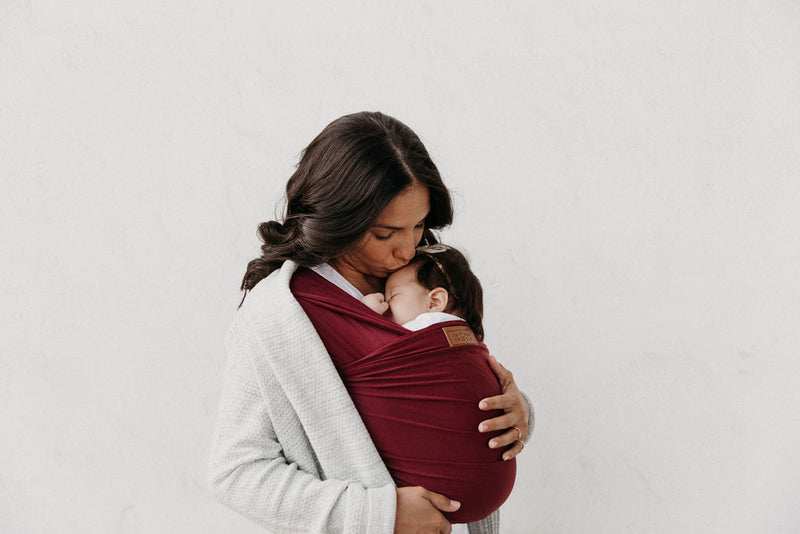
May is Mental Health Awareness Month, a time to raise awareness and understanding of mental health issues. One issue that often goes overlooked is postpartum depression.
It is estimated that up to 20% of new mothers experience postpartum depression, a condition that can make it difficult to bond with a new baby and take care of oneself.
However, there are effective and often overlooked tools that can help new mothers during the postpartum period, including babywearing and attachment parenting. Attachment parenting is a philosophy that promotes the importance of nurturing a strong, healthy attachment between a parent and child. It includes practices such as breastfeeding, babywearing, co-sleeping, and responsive caregiving.
Research has shown that attachment parenting can have positive effects on maternal mental health, reducing symptoms of postpartum depression. Studies have found that mothers who practice attachment parenting have lower levels of stress hormones and higher levels of hormones associated with bonding and relaxation.
Attachment parenting can also have practical benefits for both mother and baby. It can help regulate a baby's body temperature, improve digestion, and reduce crying. For mothers, it can improve sleep and reduce feelings of isolation and overwhelm.
Consider incorporating attachment parenting practices into your daily routine. It can be a helpful tool in your journey toward recovery. And if you know someone who is struggling, consider sharing this information with them. Let's work together to raise awareness of the importance of maternal mental health and the many tools available to support it.
Resource for those needing more assistance:
-
National Postpartum Support International (PSI)
Phone number (helpline): (800) 944-4773 (Spanish and English) Leave a toll-free and confidential message any time, and one of the helpline volunteers will return your call as soon as possible providing basic information, resources, and support.
Research Cited:
-
Hunziker, U. A., & Barr, R. G. (1986). Increased carrying reduces infant crying: A randomized controlled trial. Pediatrics, 77(5), 641-648.
-
Pelaez-Nogueras, M., Field, T., Hossain, Z., & Pickens, J. (1996). Depressed mothers and infants are more relaxed during breastfeeding versus bottlefeeding interactions: Brief report. Journal of Human Lactation, 12(1), 39-42.
-
Anisfeld, E., Casper, V., Nozyce, M., & Cunningham, N. (1990). Does infant carrying promote attachment? An experimental study of the effects of increased physical contact on the development of attachment. Child Development, 61(5), 1617-1627.
-
Anisfeld, E., Casper, V., Nozyce, M., & Cunningham, N. (1990). Does infant carrying promote attachment? An experimental study of the effects of increased physical contact on the development of attachment. Child Development, 61(5), 1617-1627.
-
Moutquin, J. M., & Soucy, I. (1987). Infant carrying and maternal attachment. Child Psychiatry and Human Development, 18(1), 37-47.
-
NCT (National Childbirth Trust). (2012). Babywearing: A practical guide to carrying your baby with confidence. Retrieved from https://www.nct.org.uk/sites/default/files/related_documents/Babywearing_0.pdf
-
Bigelow, A. E., Power, M., MacLellan-Peters, J., Alex, M., McDonald, C., & Buchan, J. (2012). Breastfeeding in depressed mothers: A pilot study of the effects of infant carrying on mother-infant interactions and cortisol levels. Infancy, 17(4), 387-408.
 Skip to content
Skip to content

